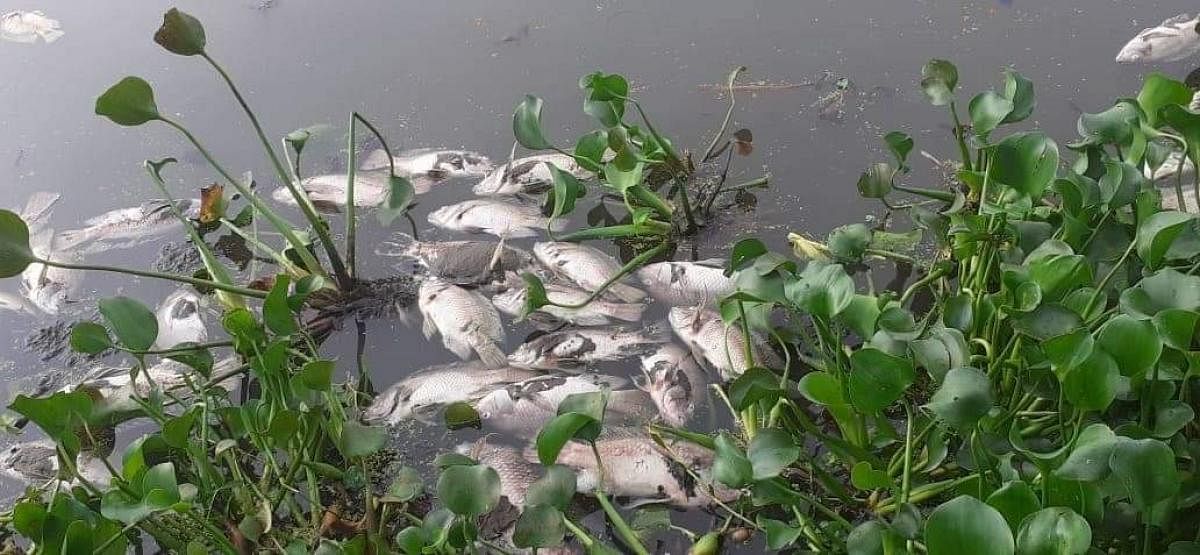
Activists have raised serious concerns over the pollution of Muthanallur Lake, located in Anekal taluk, after noticing dead fish floating in its waters.
The 600-acre waterbody is one of the largest in South Bengaluru. Local residents noticed the fish kill on May 10.
Lake activist and Congress leader Kavitha Reddy alleged that civic authorities ignored pleas to revive the lake fully. “We’ve been making the demand for the past three years,” she said.
“Industrial effluents from Jigani and Bommasandra industrial area have adversely affected the lake. Now, dead fish are floating in the water, indicating worsening water quality,” she added.
Local resident Captain Santhosh Kumar said the dead fish had been floating in the water for the past five days. “Some of the fish are as heavy as 10-15 kg,” he said, adding that releasing sewage and dumping debris have pushed pollution to dangerous levels.
“Such a situation (of fish dying) arises when the dissolved oxygen levels in the water dip below 4 mg per litre,” explained environmentalist Yellappa Reddy A N. “This could be due to discharge of effluents into the lake for a long time.”
“When few fish die, we assume the pollution is at the alert level, but in this case, the pollution has breached the alert level and has gone to the alarming level, which requires immediate action,” he said.
Since water from the lake is used for cattle rearing and farming activities by the locals, he said the pollution could have a widespread impact. “I’d advise the KSPCB to collect samples of vegetables, milk and the lake water regularly for at least 15 days and analyse the results,” he said.
The Karnataka State Pollution Control Board (KSPCB) visited the lake on Saturday. The board’s regional officer, Manjunath C R, said they collected samples from three places in the lake.
“After initial investigation, I feel untreated sewage entering the lake is a major cause of the pollution. We request the local authorities to instal sewage treatment plants and discharge only treated water into the lake,” Manjunath said.
Rejecting allegations that the KSPCB failed to frequently test the lake’s water, he said the board tested the water in March and the results showed it to be fit for irrigation. He said the recent rains could have washed off pollutants and fertilisers into the lake causing reduced levels of dissolved oxygen.